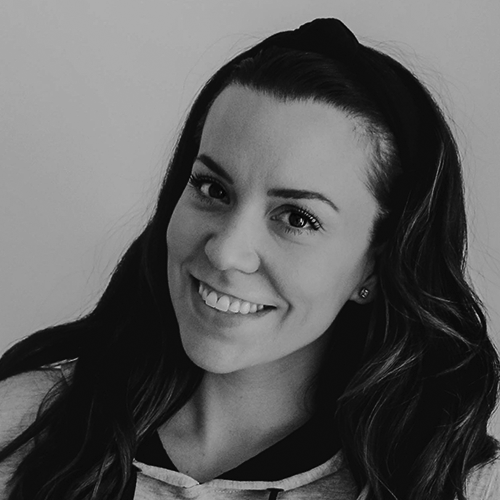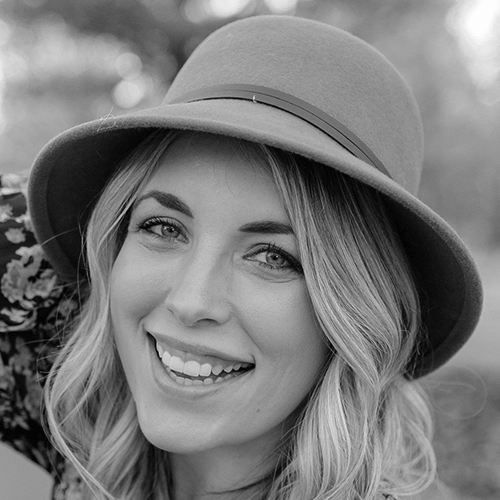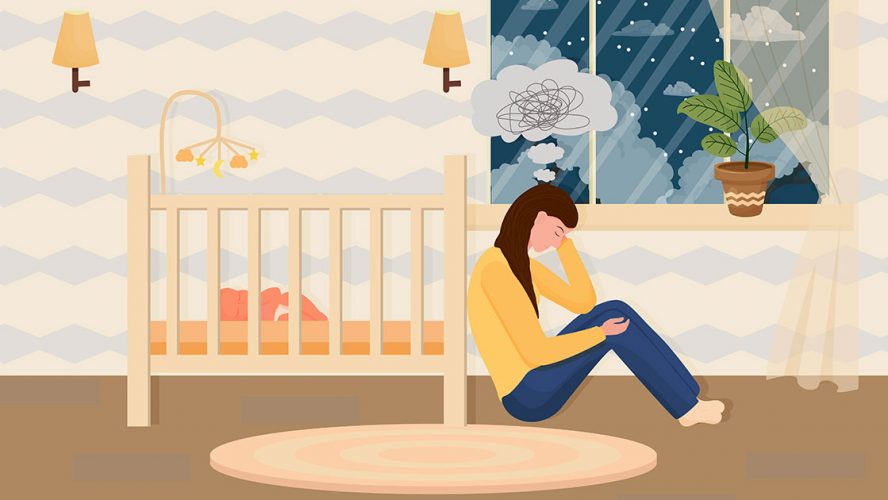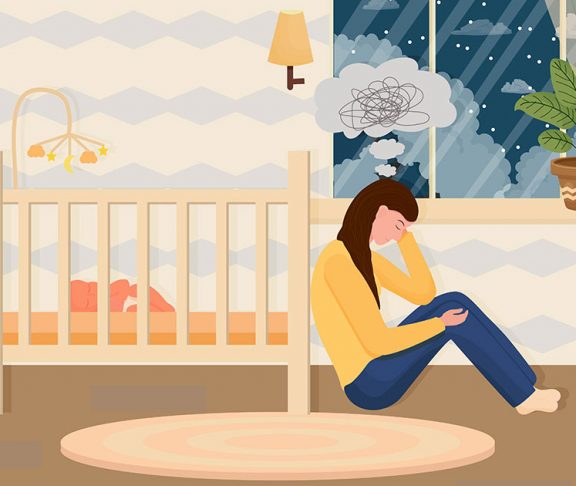Mommy bloggers Natalie Lesnefsky and Emily Parker share their experience and tips for women who may be struggling with Postpartum Depression and Anxiety.

Natalie Lesnefsky
Blogger, At Home With Natalie
What advice would you give to women that are pregnant, or that might be suffering with PPD?
Whether you are a first time mom, or mom to many, experiencing PPA and PPD can happen! I wish that I would have known more about it or how common it was! If you feel like something isn’t right, advocate for yourself as much as you can. As mothers sometimes we try to push through and feel the mom guilt for asking for help. I hope I can encourage you that you are not weak or a bad mom for suffering with PPD or PPA. You are a human being who is doing one of the hardest things. Start a conversation with someone you trust or a complete stranger- whatever it takes! Just start talking about how you feel!
Is there anything that you feel may have contributed to your experiencing PPD?
I recently had my 6th baby. He was our quarantine baby and arrived days before quarantine began. Overall he was a happy and easy baby! But I knew I was personally not feeling the same as I did with my other babies. It took me 2 months before I finally gave in for help. After encouragement from my Husband, Mom and Pediatrician…I finally scheduled the video call with my OB doctor. She said she thought I had PTSD from my past colicky baby (#5) that, combined with the stress of COVID, was the perfect storm for my Postpartum Anxiety. I figured that was what was going on after, one night at 2 am, I had googled “postpartum: why do I feel like I have a constant knot in my stomach and am panicked?”
What helped you work through your postpartum depression? Does it ever really go away?
I talked with my husband and finally let go of the mom guilt. I let him help me more at night so I could get more sleep. I hired a cleaning lady. I scheduled a video call with my doctor and got on a low dose of antidepressants to take the edge off my anxiety. It immediately helped so much- and it has only gotten better as time went on. This season is still hard and overwhelming at times but I feel significantly more capable to handle it. It’s night and day really to how I felt at the start.
Did your symptoms vary with each child?
I didn’t have my first experience of PPA until my 6th baby. This time around I was crying every day. With my other pregnancies I had the surge of hormones and emotions but this felt more. I didn’t feel sad but worried and overwhelmed. I would get the baby to sleep in the night and then not fall back asleep as I worried about everything. Sunday nights were the hardest because I knew Ben would be going to work the next day. I found myself one day trying to calm myself and breathing as if I was having contractions. I started trying different techniques to help cope with whatever was going on with me……EXAMPLE: When the baby would fall asleep (and everyone else was happy or napping.) I would sit down with him on the sofa and close my eyes and repeat “I am calm and resting…” over and over. I was trying to help myself just see that specific moment for what it was instead of rushing ahead to other things or worrying. Chase was a happy baby and clearly not colicky, but I worried, with every cry that suddenly he would turn colicky! Breathing techniques helped a little, but not enough in those early weeks. I had never experienced this before so really every postpartum can be different. Just like out of my six babies only two had colic!
How important is community amongst other new moms when dealing with PPD?
Community is so important! Other moms sharing their experiences is what encouraged me to finally seek help. When I first shared about my PPA on my Instagram, I kind of wanted to puke as I did it. Haha. I think it’s only natural that we want to share the good and fun but sometimes sharing real life isn’t that. It’s the hard parts. And the motivation to share the hard parts is that others don’t feel alone. It took me months before I asked for help- I only wish I did sooner! It was a few random DM’s from followers on Instagram who shared their own experiences… that really encouraged me that there was a better way to live these postpartum months. If you are in a hard postpartum season struggling with anxiety or depression… let me be that person for you: it’s ok to ask for help. Talk to your spouse, talk to your doctor. Whether it’s medicine, getting help for a solid night sleep or learning tools to work through the hard moments…reach out to someone if you can.
How do you deal with stress and anxiety?
I try to focus on every day is a new day. Some are harder than others. I’m known to worry about stuff out of my control or not worth stressing over (like the next day when Ben leaves for work.) and I’ve found that trying to stay in the moment and day helps. Set a plan for the day and something concrete you can focus on that brings you joy. Maybe that’s making a certain meal you like… or watching a favorite show.. maybe doing a fun activity with the kids in the backyard. Motherhood is HARD WORK but mentally slowing down and seeing the good moments helps me a lot. Maybe 30 minutes ago every child lost their mind haha but in this very moment they’re all playing nicely- AMEN! Soak that up! And I’m the first to say if you need medication, take it! Talk to your doctor and figure out what’s best for you in this season. I’m so grateful for my doctor’s support and helping me figure out how to live this postpartum better.
What resources have brought you the most ease?
The first big step for me was getting more sleep. My husband, Ben, helps a lot with the kids but it was hard for me to let go of the nighttime. I felt guilty if it wasn’t me feeding and changing and rocking him. But Ben finally encouraged and basically forced me haha to sleep in my older daughter’s bed and let him do the first feeding. Those hours of straight sleep were like magic! Letting go of control and having him help more at night was a game changer. I pray you have someone who can be that person for you! My doctor told me that sleep will be a huge help in getting through this season easier. It’s SO TRUE. Sleep is so important for our mental health!

Emily Parker
Blogger, The Journey of Parenthood
What advice would you give to women that are pregnant, or who might be suffering with Postpartum Depression (PPD)?
When it comes to PPD, realizing you have it is a HUGE step. If you’re wondering if what you’re feeling might be postpartum depression then it probably is and taking the steps to talk to your spouse, support system, and doctor is so important. Even just sharing your feelings out loud with someone you trust can help you feel better and better allow you to decide which path towards healing will work best for you.
What helped you work through your PPD? Does it ever really go away?
Realizing and recognizing my struggles with PPD helped me to instantly feel better. Talking through it with my family and my doctor allowed me to admit that I needed to prioritize self-care and it was important for me to take the time to think through what I needed. Not what everyone else needed from me, but what I needed for me! It is tough as a mom to STOP going-going-going and really think through our feelings and wants and needs and then even tougher to actually implement them! I didn’t realize I had PPD until my third baby but then when I looked back at my previous postpartum experiences, I truly believe I struggled with postpartum depression after every pregnancy, it just took it getting worse with the third one for me to finally get help. My symptoms did improve over time and I’m thankful in a way for my PPD experience as it led me to better be able to communicate my needs and to make sure I prioritize self-care. We adopted our fourth child and I was surprised to still have some similar tough emotional moments as I did after my pregnancies. I learned that post-adoption emotions can be very similar to those tough hormonal changes in postpartum.
How important is community amongst other new moms when dealing with PPD?
Community is crucial when it comes to PPD. My husband didn’t understand what I was going through, he could not empathize, but he knew something was not normal, and he was supportive of me getting whatever help I needed to work through it. He was always hands-on with all of our children, which allowed me to take a break without having any guilt. My friends and family all jumped in to help and, for me, a big step was being able to accept their help as well as ask for the help I needed when I needed it. For example, I’m a “clean kitchen” person. Laundry piling up doesn’t bother me, but messy dishes in the sink are impossible to ignore. Someone coming over and doing my laundry would be helpful but someone cleaning all the dishes would really lighten my mental load in a much more significant way. Communicating those needs clearly to my husband and others who offered to help really helped minimize my overwhelmed feelings and allowed me to better manage the tasks I needed to in order to get the rest I needed as well.
What resources have brought you the most ease?
For the last few years, I’ve been having regular visits to a therapist. It has been incredible to walk this path of healing some deeper hurts I’ve been carrying, and I cannot recommend therapy enough. It is for everyone. Whether you had a tough childhood, struggle with PPD, or just need someone to vent to, it can never hurt to talk things through with someone, and it can truly change your life. Having a solid game plan helps ease my stress levels so much.
Amy Beacom, Ed.D
Founder and CEO, Center for Parental Leave Leadership

